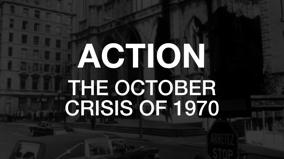New release
Coming
None
Sophie Wollock's Newspaper
1979
27 min
Leaving soon
This short documentary profiles Sophie Wollock and the newspaper she founded for the western suburbs of Montreal in l963, The Suburban. A weekly paper distributed free to some 45,000 homes, most of them anglophone, The Suburban became famous for the strongly worded editorials written by Wollock, mainly on the subject of Québec nationalism. The film looks at the paper, then under the guidance of her son, and sums up some of Wollock's more impassioned editorials.

Details
This short documentary profiles Sophie Wollock and the newspaper she founded for the western suburbs of Montreal in l963, The Suburban. A weekly paper distributed free to some 45,000 homes, most of them anglophone, The Suburban became famous for the strongly worded editorials written by Wollock, mainly on the subject of Québec nationalism. The film looks at the paper, then under the guidance of her son, and sums up some of Wollock's more impassioned editorials.
-
directorGilles Blais
-
producerJacques Bobet
-
cameraPierre Mignot
-
soundMichel Hazel
-
editingLucien Marleau
-
sound editingAlain Sauvé
-
re-recordingAdrian Croll
-
voiceSheila Graham
















